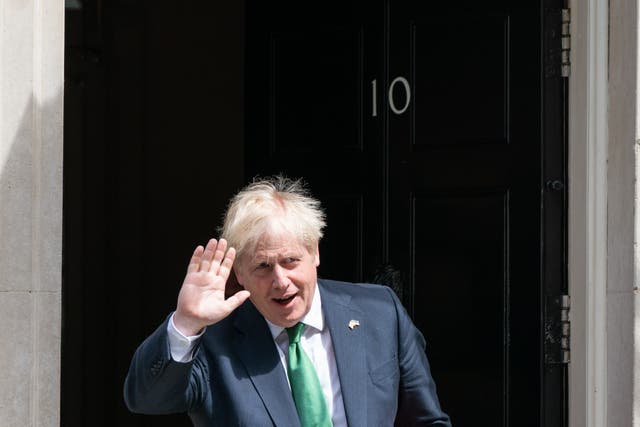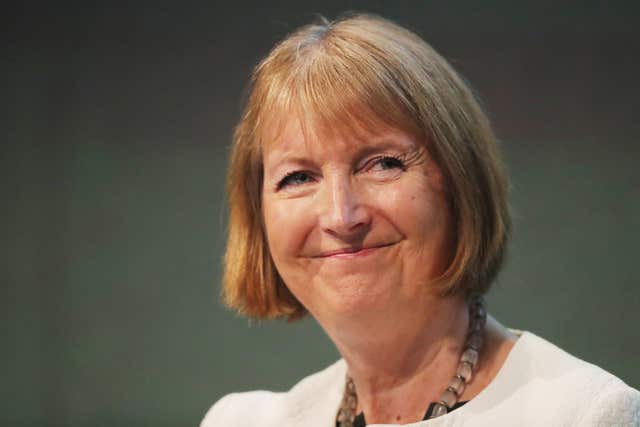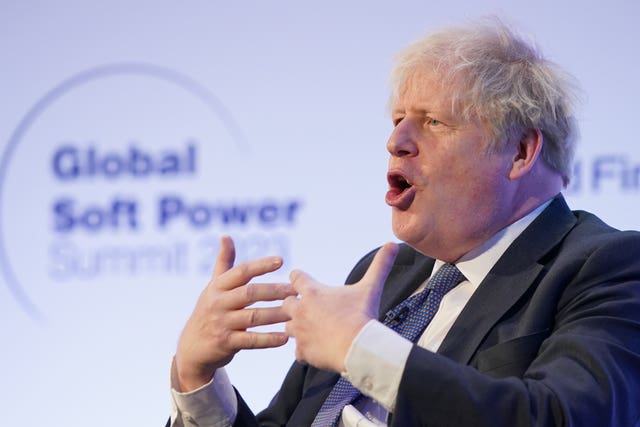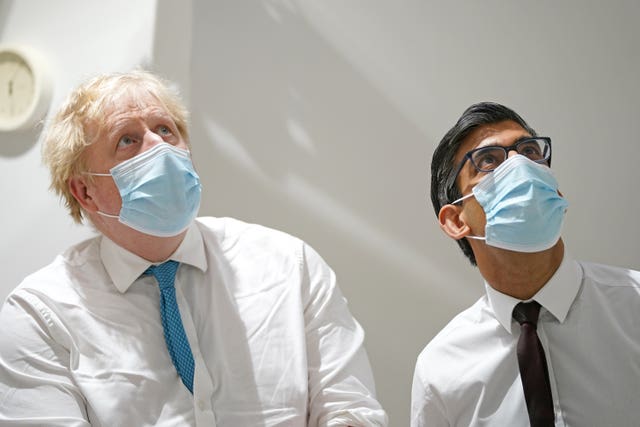Boris Johnson: Here’s what you need to know ahead of the Privileges Committee
The former Prime Minister will defend himself against claims that he lied to Parliament over the partygate scandal.

Boris Johnson will be grilled by the Privileges Committee on Wednesday as he aims to defend himself against claims he lied to Parliament over the partygate scandal.
The former prime minister is expected to offer a robust defence when he appears before MPs to give evidence.
Before the highly anticipated session, here is what you need to know.
– What is the Privileges Committee?
It is a Commons committee that has been charged with undertaking a parliamentary investigation into whether Mr Johnson lied to MPs over the partygate row.

This is not the first time that MPs have considered whether an individual is in contempt of Parliament, but it is perhaps one of the most high-profile cases.
The committee, a seven-member cross-party body, is examining evidence from at least four occasions when Mr Johnson may have misled MPs with his assurances to the Commons that lockdown rules were followed.
The committee will publish its findings on whether Mr Johnson committed a contempt of Parliament and can make a recommendation on any punishment. But the ultimate decision will lie with the full House of Commons.
– Who is the chair?
Labour grandee Harriet Harman is chair of the Privileges Committee. In Parliament since 1982, she is the longest-standing female MP and a former Cabinet minister.

Ms Harman, due to stand down at the next general election, has long been an outspoken advocate for equality in politics and a strong feminist. She has served in numerous government roles and senior positions in Labour under a succession of leaders, and also served as deputy leader.
– What about other members?
Sir Bernard Jenkin is another veteran MP. A Conservative, he has been in Parliament since 1992.
A veteran Tory Eurosceptic and chairman of the powerful Liaison Committee, he was a critic of Mr Johnson’s handling of the Chris Pincher affair and is an often vocal voice from the backbenches.
Sir Charles Walker, another member of the committee, is standing down at the next election. Another independently minded Conservative backbencher, he made headlines last year for his emotional criticism of the chaos that engulfed the final days of the Truss administration.
Conservative MP Andy Carter, who was elected in 2019 to represent Warrington South, is another member of the committee.
Alberto Costa, elected in 2015 for South Leicestershire, is the final Tory member of the committee.
Labour’s Yvonne Fovargue, an MP since 2010, has held a number of shadow ministerial roles during her time in Parliament. She has been a member of the committee since September 2021.
Allan Dorans is the sole SNP member. An MP since 2019, he represents Ayr, Carrick and Cumnock.
– What will Boris Johnson be asked?
The committee has been clear that the purpose of the inquiry is to consider whether Mr Johnson misled Parliament, rather than comb over the various details of the partygate furore.

This is likely to see questions revolve around some of the written evidence contained in the committee’s interim report, as well as quizzing Mr Johnson on his defence.
That includes WhatsApp messages given to the inquiry showing advisers “struggling” with how parties were within the rules, with one conceding an excuse “blows another great gaping hole in the PM’s account”.
The committee has said: “The evidence strongly suggests that breaches of guidance would have been obvious to Mr Johnson at the time he was at the gatherings.”
A “core bundle” of documents to which the panel of MPs and Mr Johnson may refer to in the course of the questioning will be published later this morning.
– What will his defence be?
Mr Johnson has always protested his innocence, rejecting any suggestion that he “knowingly or recklessly misled Parliament”.
He set out his core defence in a 52-page dossier, in which he stressed that he trusted the assurances of key aides and said that “hindsight is a wonderful thing”.
It is a defence that refers to the “cramped” workplace of No 10 as well as his own belief that no guidance or rules were being breached at any gathering.
Mr Johnson placed great stock in both the assurances he had received as prime minister and the fact that no-one around had expressed concerns themselves, while also making much of the fact that there is no evidence that he ever received warnings about breaches of guidance.
Elsewhere, he also takes issue with the remit and fairness of the committee process.
– What is the position of the Government?
Prime Minister Rishi Sunak, who is not planning on watching proceedings, has said he will not seek to influence MPs on the committee.

He is expected to grant a free vote in the Commons on any sanction that may be recommended.
But if Mr Johnson is found in contempt and sanctions are recommended, this is likely to cause a headache for the current Prime Minister.
Mr Johnson retains support within both the Conservative Party and within Mr Sunak’s Cabinet.
Northern Ireland Secretary Chris Heaton-Harris raised eyebrows earlier this month when he offered a staunch defence of Mr Johnson when asked about the probe, while Home Secretary Suella Braverman said over the weekend that she admired the former prime minister.
Who is Mr Johnson’s barrister?
Lord Pannick KC, one of the most widely-respected barristers in the UK, is in Mr Johnson’s corner for the encounter with the Privileges Committee.
No stranger to high-profile cases, he led the Article 50 cases against the Government at the Supreme Court in the wake of the Brexit vote.
He has led Mr Johnson’s bid to prove he did not “intentionally or recklessly” mislead MPs.
Where can I watch?
Like all parliamentary committees, the proceedings will be streamed live on Parliamentlive.TV.
But it is highly likely, given the high-profile nature of the Privileges Committee meeting, that most news channels will be screening proceedings live.





